Incoterms are short for International Commercial Terms and exist since 1936. These terms simply assign a responsible party to each stage in the supply chain when an international transaction occurs.
Do you want to be responsible for all the costs and risks until the goods arrive at the buyer’s location?
Are you able to deliver the goods to the agreed place of delivery (cross borders)?
Do you want to be insured of payment before handing over the goods?
Do you have the required import licenses and are you able to arrange the import formalities? Are you able to recoup import VAT?
Are you willing to take on all the costs and risks until the goods arrive at an agreed place of delivery where the buyer will collect the merchandise?
Are you able to deliver the goods to the place of delivery where the buyer will collect the merchandise?
Are you willing to arrange and pay for the shipment to the agreed place of delivery – without guaranteeing the arrival?
Are you delivering the goods at a seaport?
Are you sending the goods with a bill of lading (B/L or BOL)? Or are you using a non-negotiable sea waybill?
Are you delivering the goods via containers?
Are you willing to deliver the goods to an agreed international place of delivery and are you willing to take on all responsibilities upon export?
Do you ship your merchandise via truck, container, rail, plane, or a combination of shipping modes?
Do you want the buyer to be responsible to book the departure terminal?
Do you hand over the carriage of goods to a carrier on board of a vessel?
Do you hand the goods over alongside a vessel?
What are incoterms? Incoterms are trade terms that clarify all parties’ responsibilities when shipping products from seller to buyer. These rules for delivering the goods relate to international commercial law and provide clarity for all international transactions, both import and export. Incoterms also provide additional clarity on the division of tasks, costs, risks, insurance, freight/shipping, duty, declarations, associated filing costs and responsibility. Incoterms are an essential part of sales contracts and are accepted by governments and legal authorities worldwide.
Incoterms 2020 came into force on the 1st of January 2020. They are the successor to incoterms 2010 and do not contain any significant changes. The biggest difference is the new incoterm DPU (Delivered at Place Unloaded) which replaces the incoterm DAT (Delivered at Terminal), allowing the destination to be anywhere and not only have to be a terminal.
Incoterms are short for International Commercial Terms and were published by the ICC (International Chamber of Commerce). The ICC was founded in 1919, and the first Incoterms date from 1936. The latest version is Incoterms 2020.
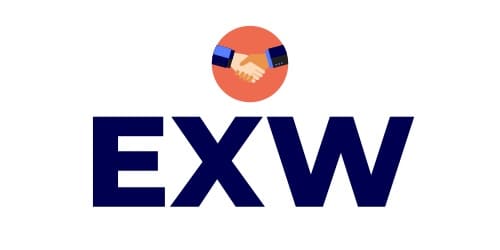
Incoterm Ex Works (EXW) means that the buyer will pick up the goods at the place determined by the seller. This could be his company, workshop or warehouse.
You can use EXW for all forms of transport (road, water, rail and air).
Mention on the contract:
‘EXW (agreed place of delivery) Incoterms® 2020’.
» The buyer picks up the goods from the seller, so the place of delivery is usually the buyer’s business
» The buyer covers nearly all costs, risks and responsibilities during the shipping process
» The only task for the seller is to ensure that the buyer gets access to the goods
» Once the buyer has access to the goods, all responsibilities are transferred to him (including the loading of goods)
In the warehouse or office from the buyer or where the goods can be picked up.
EXW is not suitable for export shipments. When exporting to a country outside the EU, the buyer is responsible for export declarations. Since 01 October 2020, this company must be established in the EU to arrange this. The buyer must, therefore, engage a logistics service provider.
The seller may charge 0% VAT because the products were exported outside the EU if he can prove this, making it tricky with EXW as the buyer is responsible for this. If there is not enough proof, the buyer pays the VAT of his country.
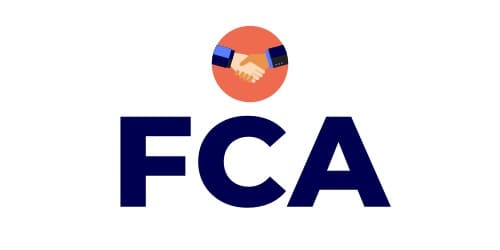
Incoterm Free Carrier (FCA) means that the seller brings the goods to a predetermined place, where the buyer or the buyer’s carrier picks them up.
There are two types of FCA: FCA-A and FCA-B.
FCA can be used for all forms of transport (road, water, rail and air).
Mention on the contract:
‘FCA (agreed place of delivery) Incoterms® 2020’.
» The buyer covers nearly all costs en risks during the shipping process.
» The only task for the seller is to ensure that the buyer gets access to the goods.
There are two variants: FCA-A and FCA-B.
» Once the buyer has access to the goods, all responsibilities are transferred to him (including the loading of goods)
» With FCA-A, the transfer of the goods takes place at the seller’s company or warehouse.
Mainly in the case of full container loads (FCL).
» With FCA-B the seller transports the goods to an external location.
Mainly with small deliveries (LCL) and/or groupage shipments.
FCA-A: Transfer of risk at the seller’s place of business or warehouse
FCA-B: Transfer of risk after the arrival of the goods at the seller’s arranged and unloaded carriage at the external location. The buyer is therefore responsible for unloading the goods and loading them into his own transport.
When exporting goods outside the European Union (EU), the seller is responsible for taking care of the export declaration, arranging an export licence and/or other export documents.
For import into the destination country, the buyer takes care of customs formalities, pays import taxes, and obtains local import documents if necessary.
FCA is, therefore, more suitable than EXW for international trade.
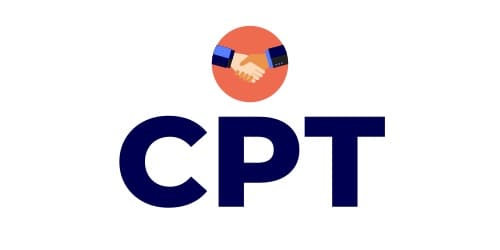
Incoterm Carriage Paid To (CPT) means that the seller delivers the goods to the (carrier of the) buyer at an agreed place.
This incoterm is most commonly used in container transport.
CPT can be used for all forms of transport (road, water, rail and air).
Mention on the contract:
‘CPT (agreed place of delivery) Incoterms® 2020’.
» The seller is liable for the costs and risks for the shipment of goods to an agreed delivery address (including unloading)
» If several means of transport are used, the first carrier shall be used as the place of delivery
» The goods are classified as delivered once they arrive at the address. The responsibility is then transferred to the buyer
Transfer of risk at the place of delivery if several transportation vehicles are used. In this case, the place of delivery is that of the first carrier.
Otherwise, at the place of destination, usually in the buyer’s country. The seller pays all transport costs (including unloading). The buyer pays customs charges and import taxes (if necessary).
When exporting goods outside the European Union (EU), the seller is responsible for taking care of the export declaration, arranging an export licence and/or other export documents.
For import into the destination country, the buyer takes care of customs formalities, pays import taxes, and obtains local import documents if necessary.
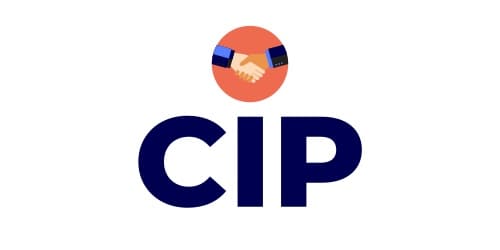
Incoterm Carriage and Insurance Paid To (CIP) means the same as CPT with the addition of the mandatory transport insurance for the buyer.
This incoterm is most commonly used in container transport.
CIP can be used for all forms of transport (road, water, rail and air).
Mention on the contract:
‘CIP (agreed place of delivery) Incoterms® 2020’.
» The seller is responsible to deliver the goods to the carrier of the buyer at an agreed location.
» The seller is liable for the costs and risks for the shipment of goods to an agreed delivery address (including unloading)
» If several means of transport are used, the first carrier shall be used as the place of delivery
» The goods are classified as delivered once they arrive at the address. The responsibility is then transferred to the buyer
Transfer of risk at the place of delivery if several transportation vehicles are used. In this case, the place of delivery is that of the first carrier.
Otherwise, at the place of destination, usually in the buyer’s country. The seller pays all transport costs (including unloading). The buyer pays customs charges and import taxes (if necessary).
This is where the incoterm CIP differs from the incoterm CPT. The seller is obligated to have goods transport insurance, which covers the transport between the place of delivery to the first carrier and the place of destination.
This insurance must be a comprehensive coverage that corresponds to the Institute Cargo Clauses (A), in other words, an all-risk coverage.
When exporting goods outside the European Union (EU), the seller is responsible for taking care of the export declaration, arranging an export licence and/or other export documents.
For import into the destination country, the buyer takes care of customs formalities, pays import taxes, and obtains local import documents if necessary.
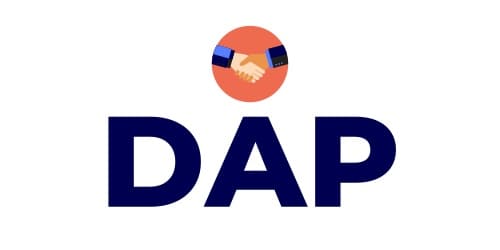
The incoterm delivered at place (DAP) means that the seller arranges transport to the place of destination and is responsible for the risk of loss and damage until he hands over the goods, not unloaded, to the buyer.
The seller should have goods transport insurance as a carrier has limited liability.
DAP can be used for all forms of transport (road, water, rail and air).
Mention on the contract:
‘DAP (agreed place of delivery) Incoterms® 2020’.
» The seller is liable for the costs and risks for the shipment of goods to an agreed delivery address
» The goods are classified as delivered once they arrive at the address. The responsibility is then transferred to the buyer
» As soon as the goods are being unloaded at their destination, the buyer takes on all the costs and risks.
When the goods are ready to be unloaded at an agreed delivery address (place of destination).
It is essential to describe the destination as clearly as possible as this is where the transfer will take place.
When exporting goods outside the European Union (EU), the seller is responsible for taking care of the export declaration, arranging an export licence and/or other export documents.
For import into the destination country, the buyer takes care of customs formalities, pays import taxes, and obtains local import documents if necessary.
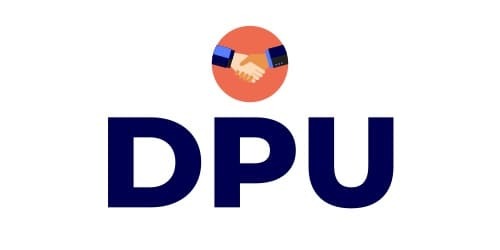
The incoterm Delivered at Place Unloaded (DPU) is just the same as DAP. The seller bears all costs and risks for the transport to the place of destination. But the difference is that unloading of the goods is also included.
Therefore, it is also important to have a goods transport insurance as a seller.
DPU can be used for all forms of transport (road, water, rail and air).
Mention on the contract:
‘DPU (agreed place of delivery) Incoterms® 2020’.
» The seller is liable for the costs and risks for the shipment of goods to an agreed delivery address
» The goods are classified as delivered once they arrive at the address. The responsibility is then transferred to the buyer after the unloading.
» The buyer takes on all the costs and risks after the goods are unloaded.
With DAP, the buyer is responsible as soon as the goods have arrived at their destination. With DPU, this is only after the unloading of the goods.
If the goods cannot be unloaded at destination, it is recommended to use DAP as incoterm.
After the goods are unloaded at an agreed delivery address.
When exporting goods outside the European Union (EU), the seller is responsible for taking care of the export declaration, arranging an export licence and/or other export documents.
For import into the destination country, the buyer takes care of customs formalities, pays import taxes, and obtains local import documents if necessary.
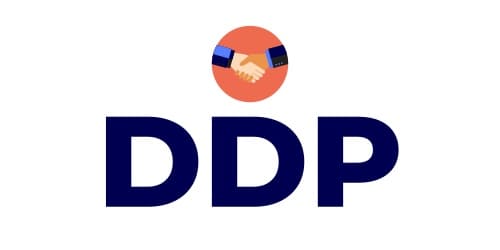
The incoterm Delivered Duty Paid (DDP) means that the seller transports the goods to a place of destination agreed with the buyer.
The seller is responsible for the costs, risks, customs clearance and payment of import duties and/or import VAT.
Therefore, as a seller, it is also advisable to have goods transport insurance for DDP.
DDP can be used for all forms of transport (road, water, rail and air).
Mention on the contract:
‘DDP (agreed place of delivery) Incoterms® 2020’.
» The seller carries nearly all the reponsibilities during the shipping process
» All costs and risks are covered by the seller, except for the unloading at the agreed delivery address
» The seller is responsible to prepare the goods for unloading and carries all the responsibilities for import and export tasks. Possible costs with regard to rights are also paid by the seller.
When the goods are ready to be unloaded at an agreed delivery address.
The seller is responsible for arranging the export declaration, export documents and customs clearance in the destination country. The seller also pays all related costs (import taxes, etc.) and takes care of an import license.
If the destination country charges import VAT, the seller must register with the local tax authorities.
The 11 different incoterms are divided into four other groups: E, F, C and D. The difference between these categories is based on delivery location and the responsibility of the costs and risks. The further subdivision per incoterm group relates to different situations.
Incoterms Group E (EXW):
Within incoterms group E (Ex-works), the responsibility is placed on the buyer. The seller assures the delivery of the goods to the buyer or the agreed destination.
Incoterms Group F (FCA, FAS and FOB):
Within Incoterms Group F, the seller is responsible for delivery according to the pre-arranged shipping method. After that, the buyer is responsible for costs and risks.
Incoterms Group C (CFR, CIF, CPT and CIP):
Within Incoterms Group C, the seller is responsible for all costs up to the destination gate. Once the goods are transferred to transport, the buyer assumes responsibility for the risks.
Incoterms Group D (DPU, DAP and DDP):
Within incoterms group D, everything relates to the destination.
To choose the right incoterms, there are several points to consider. There are three various questions you can ask yourself:
How will the goods be transported?
There are two possibilities here: any form of transport (road transport, rail transport, air transport and multimodal transport) or only transport by sea and inland waterways.
For each form of transport, you choose between EXW, FCA, CPT, CIP, DPU, DAP and DDP.
You can choose between FAS, FOB, CFR, and CIF for transport by sea and inland waterways.
What is my relationship with the other party/customer?
You have the option of a long-term relationship or a one-off delivery.
For a one-off delivery, it is best to choose F-condition incoterms.
In the case of a long-term relationship, it is best to choose a C or D incoterms condition.
How much control do I want to have myself?
If you want to have complete control of the customs process for export, it is best to avoid E-conditions incoterms.
| Yes | No | |
|---|---|---|
| Do you want to have complete control of the customer process? | Use the incoterm of question 2 | EXW |
Incoterms were created to be incorporated into commercial invoices. By doing so, both parties know immediately what they have to do, their obligations, and their risks. You can do one clear reference to an incoterm within the commercial invoice or general terms and conditions. By declaring these general terms and conditions to apply to the agreements afterwards, the incoterms also form part.
It is, therefore, convenient to use incoterms instead of putting everything separately in the commercial invoice. However, do keep in mind that individual Incoterms are not legally binding, while commercial invoices are. So do you want to deviate partly from an incoterm? Then state this separately in the commercial invoice.
Incoterms also say nothing about property transfer; this is also a separate section within the commercial invoice.
A mistake regularly made when using incoterms is the name of the place. Incoterms should always add the place where the delivery will take place to the incoterm. If this is not the case, the incoterm is incomplete.
Change of onboard bill of lading rules in incoterm FCA
In the incoterms 2010, FOB was commonly used for container shipments. The problem with this was that the seller lost control once the container arrived at the export port, while the seller takes all the risks and costs.
The incoterms of 2020 made an extra option available in the incoterm FCA to give the seller the right to receive the onboard bill of lading, which for example reduces his risks for unforeseen cancelations.
Costs are mentioned more clearly
A second difference is the listing of costs within the incoterms. In incoterms 2010, these were listed for each item separately. With the incoterms2020, this remains the case, and besides, they will be listed in A9 for the seller and B9 for the buyer, a list of all costs relevant to the Incoterms rules.
Change of insurance CIF and CIP
In incoterms CIF, the situation regarding insurance remains the same. The insurance is obtained at the seller’s expense, following the Institute Cargo Clauses’ minimum requirements (C).
For the incoterms rule CIP, it is now decided that the seller is obliged to obtain insurance covering all risks and complies with the Institute Cargo Clauses (A).
Use of own transport in FCA, DAP, DPU and DDP
The incoterms of 2020 allow the formation of a contract of carriage and transport arrangement without a third party’s intervention.
DAT (Delivered at Terminal) changed to DPU (Delivered at Place Unloaded)
DAT, which stood for Delivered at Terminal, has been changed to DPU, which stands for Delivered at Place Unloaded. This means that, from now on, a DAT delivery can take place not only at a terminal but also at any other location.
Mention of safety requirements
As transport safety requirements are becoming more important, an explicit reference to safety-related obligations and costs has been added in the Incoterms 2020.
Explanatory Notes for Users
Finally, the Guidance Notes of Incoterms 2010 have been replaced by Explanatory Notes for Users for incoterms 2020. This is to put users on the right track to choosing the right incoterms rule for a specific transaction.
This page contains legal topics. However, this information is based on 3rd party sources. There is no guarantee that this information is legally correct, depending on the situation and time. If you are lawfully seeking accurate information, we recommend that you consult a legal advisor. The legal information contained on this page is general. It cannot be replaced by a sworn professional’s advice, i.e. a competent authority with specialised knowledge to apply it to your situation’s particular circumstances.
